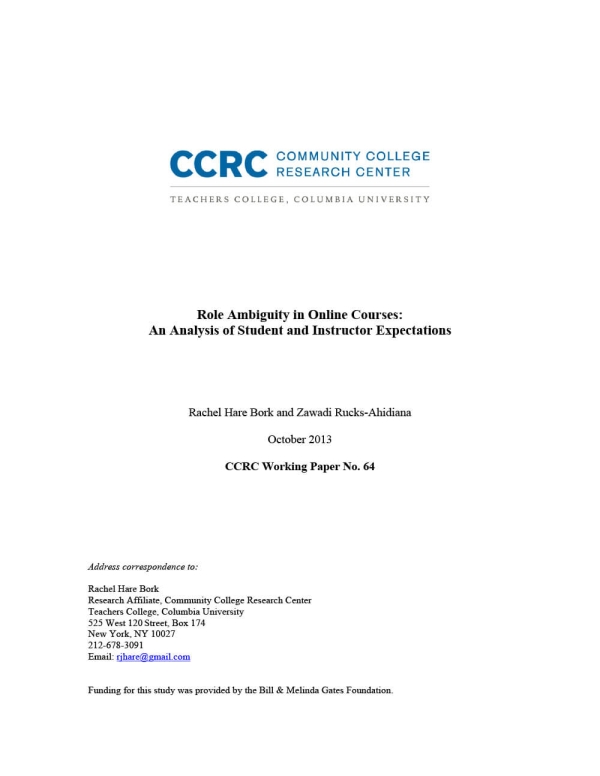This paper uses data from a qualitative investigation of online courses at two community colleges and a framework of role and socialization theory to examine how expectations about the roles of online student and online instructor differ among students and instructors. The findings suggest that a misalignment of student and instructor expectations of one another’s actions and behaviors leads to role ambiguity in the online context.
Role ambiguity tends to cause frustration, confusion, and tension among both students and instructors, as they struggle to understand how their online roles differ from their roles in face-to-face settings. The mutual misalignment of expectations, coupled with a lack of exposure to the typical socialization processes that would be present in a face-to-face course, suggests that colleges need to implement institutional-level interventions, such as student readiness and faculty development activities, to bring online student and instructor expectations into better alignment.



